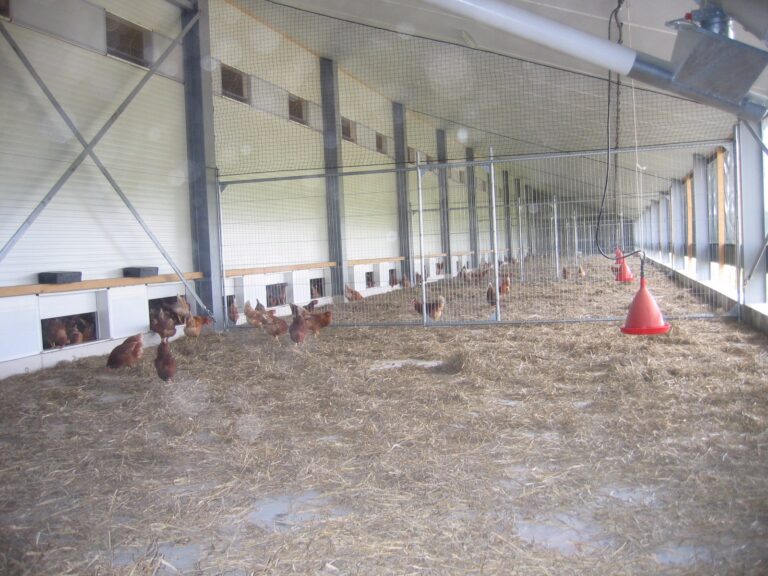Could verandas on poultry sheds be the best solution to retaining free-range status when AI restrictions are in place, or do consumers just need better educating about why housing birds is best?
By Rachael Porter
With avian flu hitting the headlines again, and fears that the recent confirmation of new cases could signify that the disease is circulating in the UK’s non-migratory wild bird population, it’s imperative that the industry takes steps to not only protect the health and welfare of free-range broiler and laying flocks but to also their free-range status.
NFU poultry board member Charles Bourns, who is also chairman of Copa Cogeca’s poultry and eggs working party, says that verandas are a possible to solution to safeguard both. And he’s just back from a meeting with the European Commission to discuss possible solutions to the growing AI crisis across Europe.
Verandas were firmly on the table as a possible practical solution for UK producers, seeking to retain their status should birds have to remain inside for longer than the permitted 12-week period due to the threat of AI.
“Feedback from producers is that they would like to see a repeat of this year’s measures in terms of protecting free-range flocks from avian flu,” he says. “Keeping birds housed kept costs to a minimum and protected the premium that they command for their free-range produce.
“Indeed, it’s the solution of preference adopted by EU countries that are hit by avian flu more severely and more frequently that the UK.
Spanish view
In other countries, measures like verandas would be considered unnecessary because consumers are more accepting of the need to house birds in a time of crisis.
“Spanish consumers, for example, understand that,” says Bourns. “They accept that and that’s one reason why Spanish producers are not keen on the idea of verandas as a solution. They just see them as an unnecessary additional investment.”
But it’s a different story in the UK. Pressure is coming from Government and retailers, who say that a repeat of what happened in 2017 will not be acceptable in 2018 and that steps should be taken to find a solution to protect free-range status. “They will not allow a derogation on current free-range rules again,” says Bourns.
Cost concerns
Opposition to verandas from producers is predominantly due to cost, which Bourns estimates will be between £1.50 and £3 per bird. “That’s quite a significant investment, but one way to view it is as an insurance policy. Should there be prolonged restrictions again, and verandas are in place and in use, producers would, in theory, retain their free-range status.
Built properly, verandas can be extremely effective at protecting flocks from AI, “providing wild birds can’t gain access or have contact with the flock,” says Bourns.
Stocking density
Norfolk-based producer Simon Dann agrees. He has verandas on the buildings that house his 18,500-strong Shaver free-range egg-laying flock. In fact, he’s had verandas for the past 10 years and they’re in use all the time. He constructed them from himself from sections of old shed taken from a local Bernard Matthews unit. He has three and they’re between three and four metres wide, have wooden, wire-meshed ‘walls’, concrete floors that are bedded with a little chopped straw, and a solid, sloping rooves.
“I think of them as all-weather play pens really – somewhere for the birds to scratch about when the weather out on the range isn’t so inviting. And they’ve also served to reduce my stocking density a little.
“The standard for a free-range house is nine birds per square metre and my houses now stand at six birds. And they were inexpensive to build – just time, a few second-hand panels and some concrete.”
Bourns says that the closest he’s seen to a veranda on a commercial poultry unit is the ‘winter garden’ system used on many Dutch and German farms. “But they still lost their free-range status when they housed their birds due to AI.”
The Dutch agree that verandas could be answer to housing free-range flocks for long periods, due to the AI risk, and retaining free-range status. “But we’ll have to see what the European Commission decides, after it’s shared our views and information with its panel of experts,” says Bourns. “With so many EU countries opposed to verandas as a possible solution, it’ll be very interesting to see what the outcome is.”


